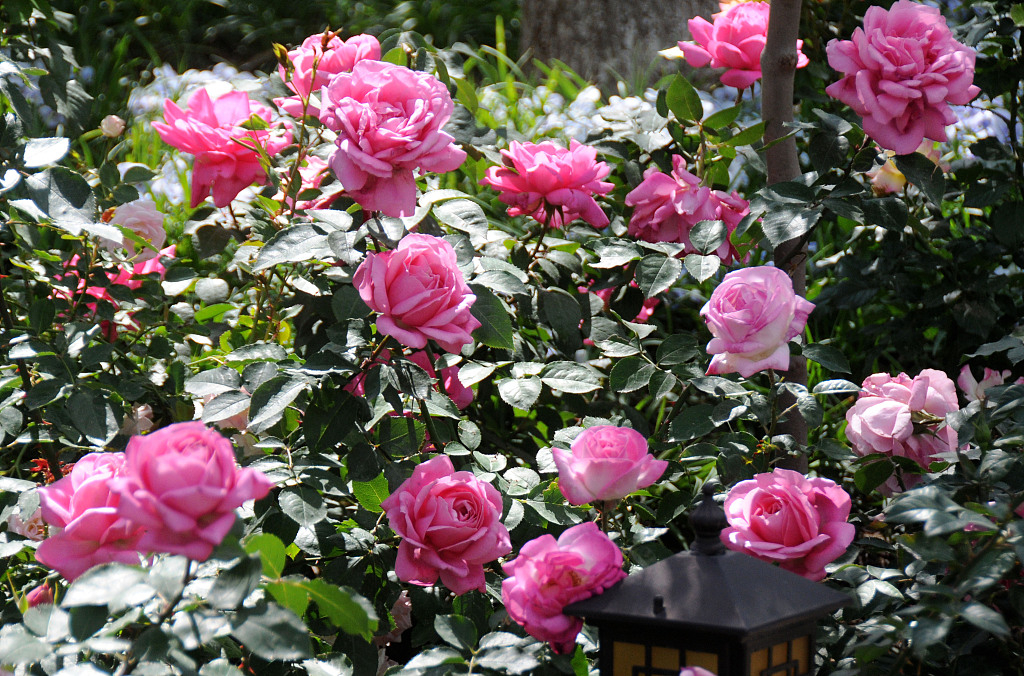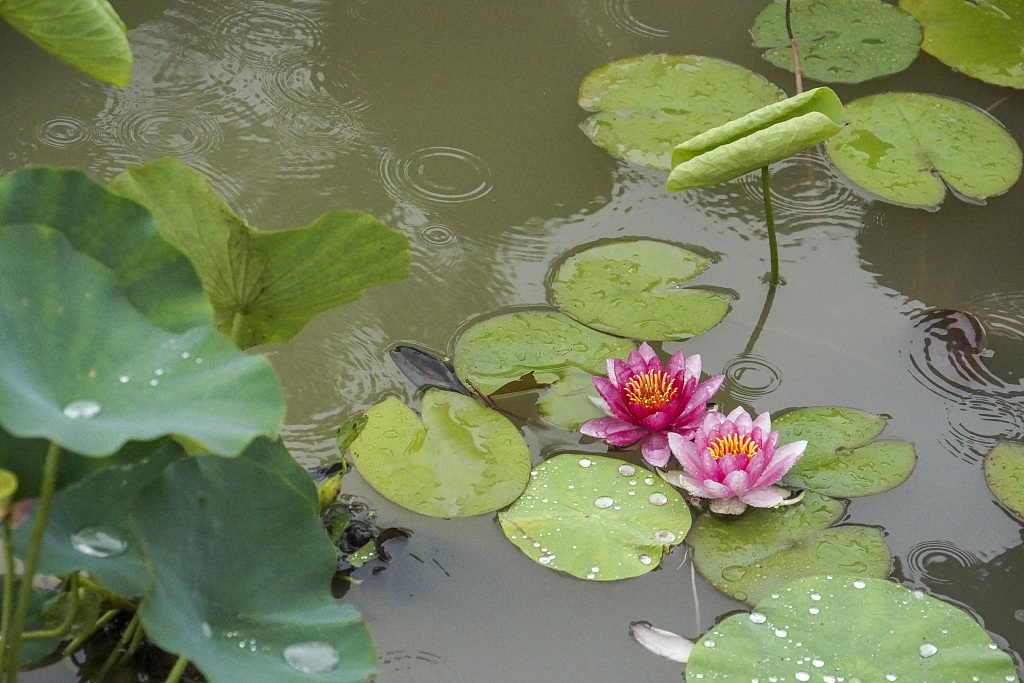
Three months after the Beijing Horticultural Expo opened, a botanical documentary titled "The Journey of Chinese Plants", has wrapped and will be released soon, said the expo's coordination bureau on Monday.
The documentary features 10 episodes covering tea trees, mulberry, rice, soybeans, bamboo, gardens and flowers, and each episode will run for about 50 minutes. It will show the life journey of 28 plants through stories of how they have affected the world.

A view of the China Pavillion in Beijing Expo 2019. /VCG Photo
The documentary is the longest 4K documentary produced on the Chinese mainland so far. Through plenty of time-lapse shots, the audience can clearly see the growing process of the plants and feel their vitality.
It took nearly three years to complete, thanks to the painstaking efforts of more than 200 people.

Flowers blossom in Beijing Expo 2019. /VCG Photo
A total of 133 photographers visited 93 regions in 27 provinces in China, as well as more than 30 regions in seven countries including the U.S., the UK, Japan, Italy, New Zealand, India, and Madagascar.
"We used cameras to record the stories of the plants and build up life archives for the plants via images. We gained reverence for life during the filmmaking process," said Li Chengcai, chief director of the documentary.

Lotus in the Beijing Expo 2019. /VCG Photo
The documentary is expected to help the audience appreciate the modesty and gratitude that the Chinese civilization has given to nature by exploring the plant world, according to Zhou Jianping, executive deputy director of the bureau.
The Beijing horticultural expo, themed "Live Green, Live Better," is open until October 7 and features a vast collection of flowers, fruit trees, Chinese herbal medicines and plant landscaping techniques, as well as ideas for green development.

Copyright © 2018 CGTN. Beijing ICP prepared NO.16065310-3
Copyright © 2018 CGTN. Beijing ICP prepared NO.16065310-3